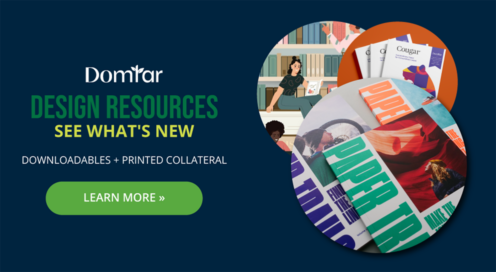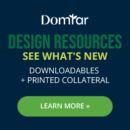Inky hands and backwards typography
Written by Derwyn Goodall RGD, Goodall Integrated Design
After a wait of two years, Derwyn Goodall RGD met his design hero Erik Spiekermann in Berlin for a letterpress workshop. Below, he reflects on his experience.
In early 2020 I was planning a spring trip to Berlin to participate in a letterpress workshop conducted by renowned type designer Erik Spiekermann at p98a. His experimental letterpress workshop is dedicated to letters, printing and paper — all the things I love! It was a way of celebrating my 60th birthday. But Covid unfortunately had other plans.
Erik’s work has elevated typographic craft for the last half century. He is an author, information architect, type designer (FF Meta, ITC Officina, FF Info, FF Unit, LoType, Berliner Grotesk, to name a few) and an author of many books on typography. I suspect you’ve heard of him!
In 1979, he founded MetaDesign. The firm’s clients included Audi, Skoda, Volkswagen, Lexus, Bosch and he did way-finding projects for Berlin Transit, Düsseldorf Airport and many others. In 1988 he started FontShop, one of the first companies responsible for the design, production and distribution of electronic fonts. His book “Stop Stealing Sheep”, originally published in 1993, has now been released as a fourth edition.
During the Covid-19 lockdown, I put my time to good use. I created a number of graphic posters that used positive messaging to help people cope better during uncertain times. Many of those posters were internationally recognized and so I was primed for my next adventure. Fast forward two years and off I go to Berlin!

Meeting a “design hero” is one thing, but working with one is another experience altogether. Prior to the workshop, I felt exhilarated and anxious. Exhilarated to meet a legendary designer and anxious knowing I was about to spend eight hours with someone I’ve never met. What if we didn’t click?
When I arrived, Erik was very welcoming. “Here is the Canadian!” We chatted for over an hour about type and design. He later told me, he researched my profile and told me I was not an “a** hole”. OK, great! The posters in Erik’s studio reflect his beliefs — “Don’t work for a** holes, Don’t work with a** holes” and “Use your f*ing brain”, etc. I loved his irreverent honesty!
p98a explores how letterpress can be redefined in the 21st century through research, printing, collecting, publishing and making things. The studio has a vast collection of hot metal and wood type, several proof and platen presses and other traditional analogue equipment. There is a Ludlow caster, a Risograph, a Glowforge laser which makes polymer metal-backed 50×70cm plates direct from data. Those plates are printed on a 1954 Heidelberg Cylinder.
Letterpress printing is a very physical endeavour. My process began by choosing the wood type for my composition. The wood type I chose was from the US, Italy, the UK and Germany. Each letter form was at least 100 years old.

I’ve worked as a digital designer for most of my career, so the idea of arranging physical letter forms backward into a coherent composition was a big mental shift. Once I chose the letter forms, Erik height adjusted each letter to ensure uniform ink coverage across the entire composition. He did this by adding card stock under each letter to achieve a balance in letter heights. Once the composition was decided, he secured each letter in the press bed. Seeing all the letters locked down in position was a work of art!
Letterpress printing began in the 15th century, when Johannes Gutenberg created the first mechanical movable type. My process definitely felt like I took many steps back in time!
With the wood type securely locked in position, I chose the colours and began inking each letter with a roller. Six hours later and having passed through two different presses, I had twelve beautifully imperfect prints to take home to Canada. Every print is subtly unique with minor variations in colour and ink density — the antithesis of digital precision.
My time working with Erik was an extraordinary experience and I am extremely happy with what we created together. Erik was the consummate host. He got his hands dirty alongside me and was happy to offer technical support. The conversation was lively and his irreverent sense of humour made the day relaxing and memorable.
Was it worth the trip to Berlin, DEFINITELY!

Derwyn Goodall RGD
Goodall Integrated Design
I am a creative problem solver. I combine strategy, art direction and design to tackle the most interesting challenges in branding, visual identity, print and interactive.
















